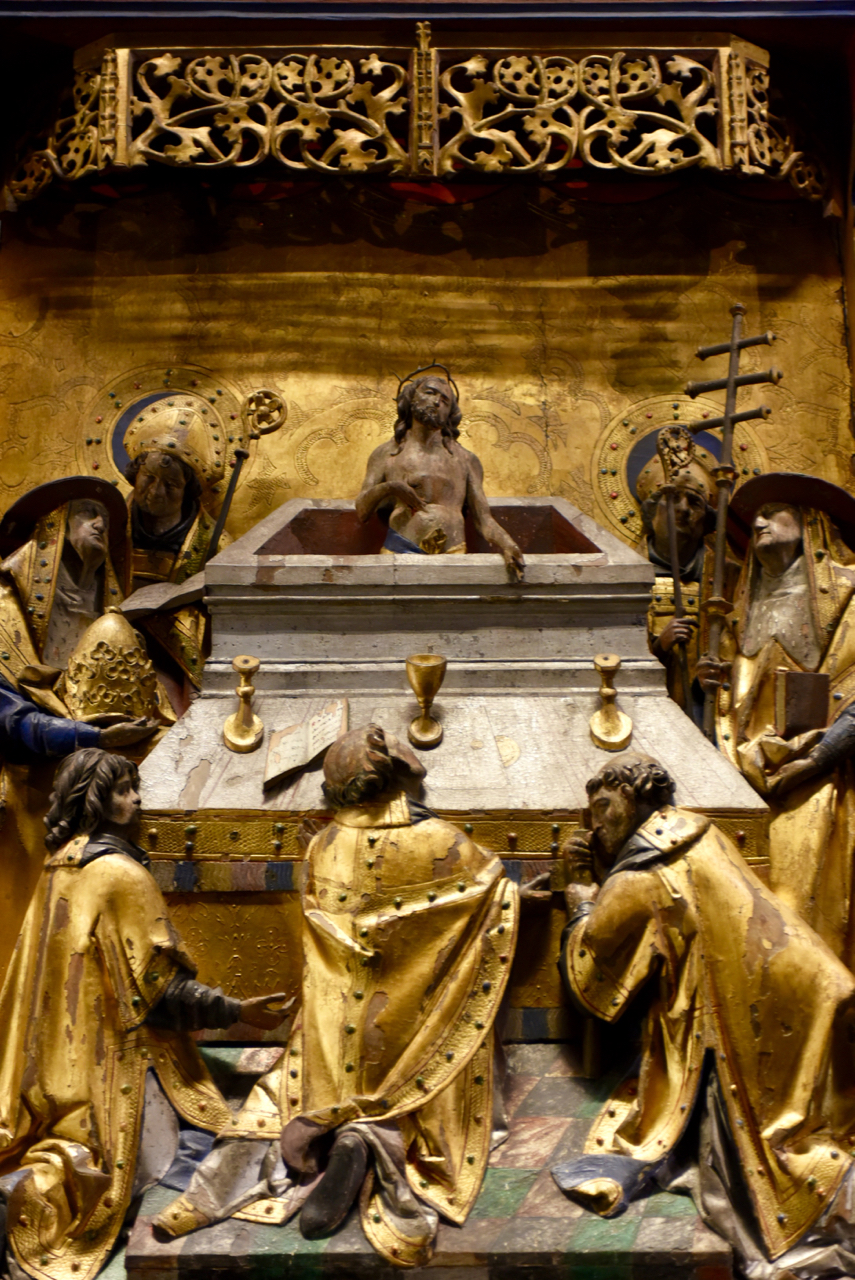2Sam. 12:20 Then David rose from the ground, washed, anointed himself, and changed his clothes. He went into the house of the LORD, and worshiped; he then went to his own house; and when he asked, they set food before him and he ate. 21 Then his servants said to him, “What is this thing that you have done? You fasted and wept for the child while it was alive; but when the child died, you rose and ate food.” 22 He said, “While the child was still alive, I fasted and wept; for I said, ‘Who knows? The LORD may be gracious to me, and the child may live.’ 23 But now he is dead; why should I fast? Can I bring him back again? I shall go to him, but he will not return to me.”
There are certain facts that are unalterable. Death is one of those facts. Our faith in the resurrection does not alter the fact that we die, but it does remove its power over us. A painful and necessary step in our healing is to recognize that our loved one is gone, but to realize as well that the absence is temporary. As David said of his first son born to Bathsheba, “I shall go to him, but he will not return to me.”
 We cannot and should never forget, or rather, we should never fail to remember our loved ones who have gone before us. To remember them and to remember them with others is a wonderful blessing. Yes, it will be painful at times to remember that impish grin or unruly hair, but it is also a joy to think of all the smiles and laughter. For those of us who remain, we have been given the blessed burden of preserving the memory of those who have gone before us. We have been entrusted with their legacy, not that of buildings with their names on it that some are fortunate to leave, but the truest legacy of memory — sharing the stories of their favorite games, silliest jokes, and quirkiest moments.
We cannot and should never forget, or rather, we should never fail to remember our loved ones who have gone before us. To remember them and to remember them with others is a wonderful blessing. Yes, it will be painful at times to remember that impish grin or unruly hair, but it is also a joy to think of all the smiles and laughter. For those of us who remain, we have been given the blessed burden of preserving the memory of those who have gone before us. We have been entrusted with their legacy, not that of buildings with their names on it that some are fortunate to leave, but the truest legacy of memory — sharing the stories of their favorite games, silliest jokes, and quirkiest moments.
On the other hand, if we allow ourselves to wallow in the deep pools of grief forever, we rob our loved one and fail to pass along their heritage. I have known some who find the pain of remembering so sharp that they have removed all pictures and mementos and forbid even the mention of their child who is gone. This makes tragedy beyond tragic; it erases all knowledge of them as if they never existed. They have died once, do not let them die again.
Resist the impulse, do not throw away the pictures; leave their room untouched for a while. We have to take what time we need to grieve, but grieving is not forgetting and forgetting does not bring comfort. In time the memories transform from the knives the pierce the soul to become the balm that salves.
1Th. 4:13 But we do not want you to be uninformed, brothers and sisters, about those who have died, so that you may not grieve as others do who have no hope. 14 For since we believe that Jesus died and rose again, even so, through Jesus, God will bring with him those who have died.






One thought on ““I shall go to him, but he will not return to me.””
Is this a Jehova’s Witness/Seven Day Advent article? King David was clearly referring to the fact that when he dies, he and his son would immediately reunite together in Heaven with their immortal spirits, he was not referring to the second coming of Jesus Christ and the future resurrection which is a different event. Both the Old Testament and the New Testament clearly say that the souls of mankind are immortal and upon passing away thee judgement comes and you go either to Heaven or to Hell, forever.
Also all of the civilizations throughout the entire history unnanimously believed in the immortality of the soul and the afterlife, it was only at the 19th century when the false religion of naturalism(darwinism) came that all these futile atheistic nonsense weree advocated as a failed attempt to hide from the truth, but in the end noone can escape the eternal divine judgement.